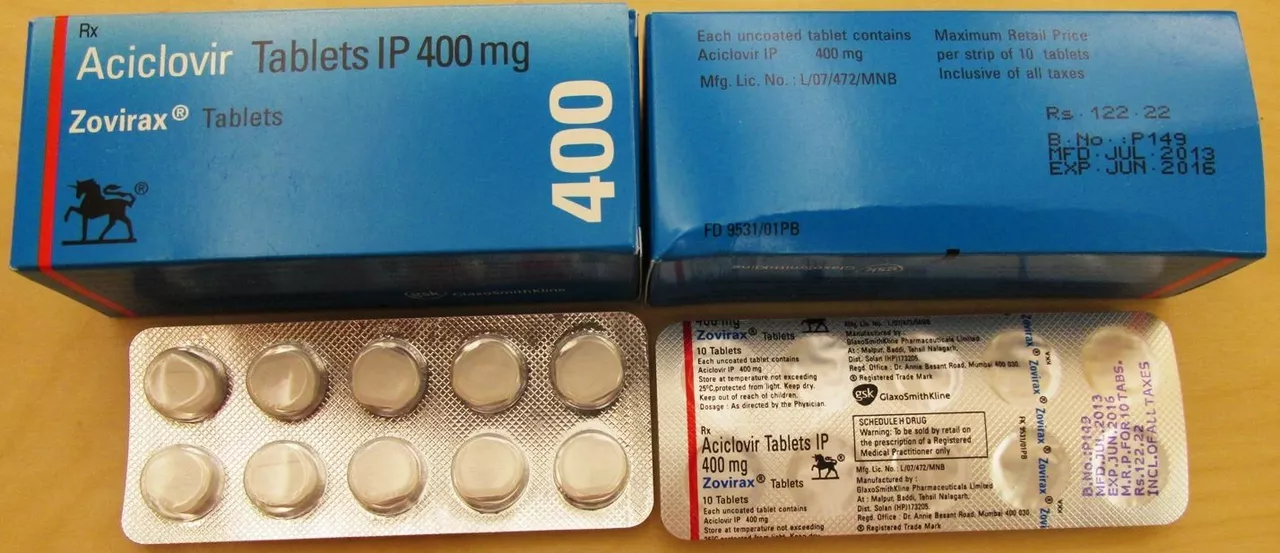Introduction: Understanding Acyclovir and Liver Function
As a blogger who is always looking to provide our readers with accurate and helpful information, I felt it was important to explore the relationship between Acyclovir and liver function. Acyclovir is a common antiviral medication that is widely prescribed to treat various viral infections, particularly herpes simplex virus and chickenpox. But, like any medication, it's important to be aware of potential risks and side effects associated with its use. In this article, we will delve into the possible risks of Acyclovir on liver function, so you can make informed decisions about your health.
How Acyclovir Works
Before we dive into the potential risks associated with Acyclovir and liver function, it's important to understand how this medication works. Acyclovir belongs to a class of drugs called nucleoside analogs, which work by inhibiting the replication of viral DNA. This essentially stops the virus from multiplying, which can help to reduce the severity and duration of an outbreak. It's important to note that while Acyclovir is effective at managing symptoms and preventing outbreaks, it is not a cure for viral infections.
Acyclovir and the Liver: What You Need to Know
Now that we have a basic understanding of how Acyclovir works, let's explore the potential risks it may pose to liver function. The liver is responsible for metabolizing and eliminating many medications from our bodies, including Acyclovir. In some cases, the use of Acyclovir can lead to elevated liver enzymes, which may be an indication of liver damage. However, it's important to note that this is a relatively rare side effect, and most people who take Acyclovir do not experience any issues with their liver function.
Recognizing the Symptoms of Liver Damage
It's important to be aware of the symptoms of liver damage, particularly if you're taking a medication like Acyclovir that has the potential to affect liver function. Some common signs of liver damage include:
- Jaundice (yellowing of the skin and eyes)
- Dark urine
- Light-colored stools
- Loss of appetite
- Nausea and vomiting
- Abdominal pain and swelling
- Chronic fatigue
- Easy bruising or bleeding
If you experience any of these symptoms while taking Acyclovir, it's crucial to contact your healthcare provider immediately for further evaluation.
Minimizing the Risk of Liver Damage
While the risk of liver damage from Acyclovir is relatively low, there are steps you can take to minimize your risk even further. Some of these include:
- Taking the medication exactly as prescribed by your healthcare provider
- Informing your healthcare provider of any other medications, supplements, or herbal products you are taking
- Drinking plenty of water to help flush the medication from your system
- Maintaining a healthy diet and lifestyle to support overall liver health
- Having regular check-ups with your healthcare provider to monitor your liver function
When to Seek Medical Attention
As mentioned earlier, if you experience any symptoms of liver damage while taking Acyclovir, it's important to seek medical attention immediately. Additionally, if you have a history of liver disease or other risk factors that may affect your liver function, it's crucial to discuss these concerns with your healthcare provider before starting Acyclovir. They may need to adjust your dosage or recommend an alternative medication to minimize your risk of liver damage.
Conclusion: Weighing the Benefits and Risks
Ultimately, the decision to take Acyclovir or any medication should be based on a careful evaluation of the potential benefits and risks. For many people, Acyclovir can provide significant relief from the symptoms of viral infections and help to prevent outbreaks. However, it's essential to be aware of the potential risks to liver function and take steps to minimize these risks. By working closely with your healthcare provider and staying informed about your health, you can make the best decisions for your unique situation.








18 comments
Ikenga Uzoamaka
I've been on acyclovir for 3 years now... and my liver enzymes? Still normal. But I also drink water like it's my job. Don't be lazy, people. Seriously.!!
Allen Jones
They don't want you to know this... but acyclovir is secretly a Big Pharma tool to make your liver weak so they can sell you MORE drugs. I've seen the documents. The liver is the first target. 💀
jackie cote
If you're concerned about liver health while on antivirals, get baseline labs and monitor. Simple. No drama. Just science.
ANDREA SCIACCA
You think this is about liver damage? Nah. This is about control. The FDA approves this stuff because they're in bed with the pharmaceutical cartel. We're all lab rats. And your liver? Just another casualty. 🇺🇸🔥
Camille Mavibas
I take acyclovir for cold sores and I just... drink water and eat greens. 🌱 It's not that hard. Also, yoga helps. I swear. 😌
Shubham Singh
I had a cousin who took this and got jaundice. He didn't tell anyone. Thought it was just "tired skin." Died in 3 weeks. Don't be him.
Hollis Hamon
I've been prescribing this for 15 years. The liver risk is statistically negligible compared to the benefit. But if someone has pre-existing liver disease, we adjust. Always.
Adam Walter
Acyclovir is metabolized by the liver? Yeah, but so is caffeine, ibuprofen, and that questionable energy drink you chug before bed. The liver’s a tough little beast. It’s not going to fold because you took a pill for herpes. But if you’re guzzling whiskey and popping 500mg doses like candy? Yeah, you’re asking for trouble. 🤓
Gurupriya Dutta
I'm curious-do you think the risk is higher for people with hepatitis B? I've read conflicting info.
Michael Lynch
I’ve taken acyclovir for years. Never had an issue. But I also don’t smoke, sleep 7 hours, and laugh a lot. Maybe the real medicine is just living well.
caroline howard
Oh wow. So the article says "don't ignore symptoms" and you're shocked? Maybe the real risk is reading medical blogs instead of talking to a doctor. 😏
Melissa Thompson
This is why American healthcare is broken. You don't just "monitor" your liver-you should be getting full hepatic panels quarterly. And if you're not on a gluten-free, organic, alkaline diet? You're basically inviting liver failure. The FDA doesn't care. They're paid off.
Rika Nokashi
In India, we have a different perspective. Many patients take acyclovir without any monitoring because they can't afford labs. And yet, the incidence of hepatotoxicity remains low. So perhaps the real issue isn't the drug-it's the over-medicalization of everything. We don't need a blood test for every sneeze.
Don Moore
For patients with compromised hepatic function, dosage adjustments are standard. Always consult your provider. This is not a medication to self-prescribe or ignore.
Austin Levine
My mom took this after shingles. No issues. But she's 72 and drinks green tea. Coincidence?
Matthew King
i took acyclovir for a year straight. no liver probs. also i ate a lot of pizza. so maybe its chill?
Andrea Swick
I think the real takeaway here is that most people overestimate the risk of medication side effects and underestimate the risk of untreated viral infections. Acyclovir saves lives. Liver enzyme spikes are rare and often transient. Don't let fear stop you from getting the care you need.
Ikenga Uzoamaka
I'm the original poster. Thank you for the replies. I didn't realize how emotional this topic is. To everyone who said "drink water"-you're right. And to the conspiracy folks... I get it. But I'm just trying to help people not panic.